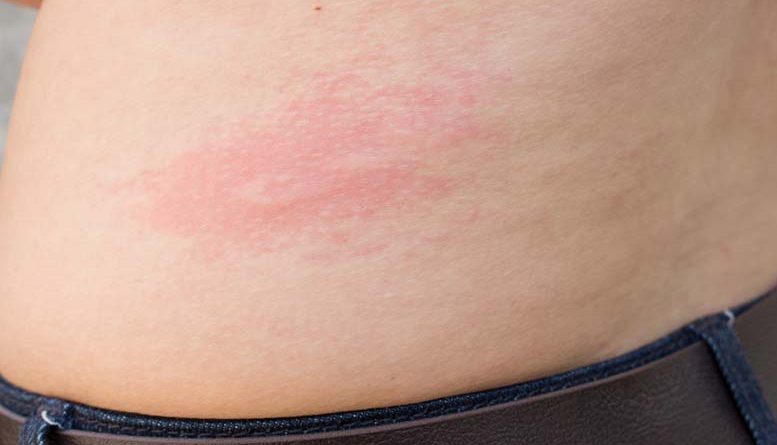Urticaria is the medical term for what is commonly known as hives; a skin condition that develops as a reaction to an environmental trigger, leading to red, raised, and itchy bumps on the skin. Although urticaria does not pose a serious risk to one’s life, it can the source of much discomfort to the point of impacting sleep and everyday life.
Symptoms of Urticaria
Hives symptoms usually start off with white or red patches of bumps forming on the face, upper body, arms, and legs. These patches or plaques are typically varied in both shape and size and shape, and they tend to disappear and repeat numerous times until they completely heal.
Hives are usually quite itchy if not severely and may also become swollen, inflamed, and painful. In most cases, hives form in reaction to contact or exposure to an environmental trigger such as an allergen or irritant, but they may also break out for no evident reason. If not related to allergies, urticaria outbreaks are usually triggered by sudden temperature changes, body temperature fluctuations induced by physical activity, and stressful circumstances.
What Can Cause Urticaria?
Hives bumps are usually brought on by the skin cells secreting the substance known as histamine into the blood flow. Even though the root cause of a reaction may remain a mystery in some cases, every case is individually assessed. The most common risk factor associated with hives are:
– Prolonged exposure to sunlight
– Insect Bites
– Over-exercising
– Certain medications
– Infections
– Too much stress
– Sudden weather changes
– Certain foods
– Alcohol
How Is Urticaria Treated?
Urticaria treatment is determined based on each specific case. The first step usually involves an attempt at relieving symptoms using over-the-counter medicines such as antihistamines. If the OTC options prove ineffective, your physician puts together a more potent treatment plan to address your symptoms.
Initially, your doctor will likely attempt to determine whether your hives are a result of an underlying ailment. For instance, a thyroid condition like thyroiditis can result in chronic hives, and receiving treatment for the thyroid condition typically also eliminates the symptom of hives.
If antihistamines do not work and your physician fails to pinpoint an underlying disease that may be causing your hives, there are some other treatment options your doctor may recommend, including:
H-2 antagonists: These drugs inhibit the release of histamine into the bloodstream and are available for oral or intravenous use.
Anti-inflammatory medicines: Corticosteroids that are taken orally like may be effective in reducing irritation, inflammation, and itching as a short-term relief. However, prolonged use of these medications come with serious adverse side effects so they are only used for temporary relief.
Antidepressants: Your doctor may prescribe you a topical form of tricyclic antidepressants to alleviate itchiness.
Is Urticaria Preventable?
There are some self-care strategies that can keep hives outbreaks at bay. For instance, only wearing baggy clothing made of soft materials can go a long way in avoiding irritation. Not scratching the affected areas is also imperative as scratching almost always exacerbates the hives. It may also help to keep track of your food intake and your activities as well as your symptoms to be able to pinpoint your triggers.
Featured Image: Depositphotos/© wasansos1




